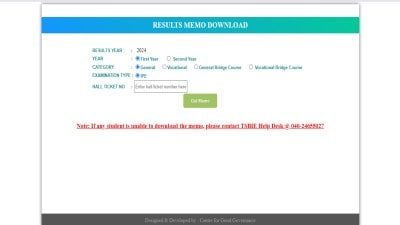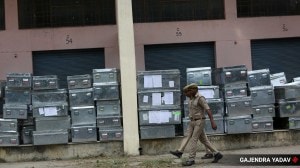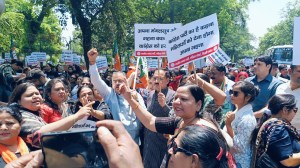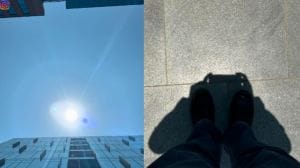- India
- International
I-T ‘surveys’ think tank CPR, Oxfam India and trust that funds digital media
The action came on the day tax authorities also conducted nationwide "searches" at over 100 locations spread across states including Maharashtra, Madhya Pradesh, Chhattisgarh, Uttarakhand, Uttar Pradesh, Haryana, Gujarat and Delhi.
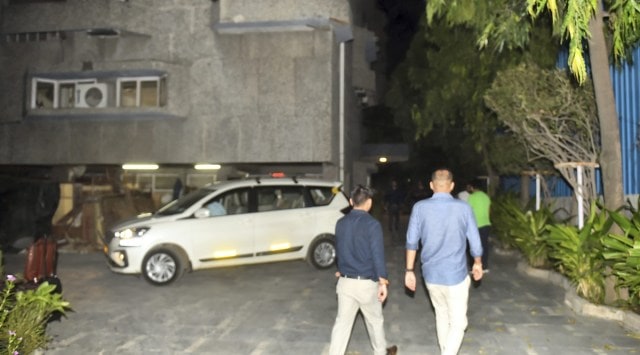 I-T officials at the premises of Centre for Policy Research in Delhi on Wednesday. (PTI)
I-T officials at the premises of Centre for Policy Research in Delhi on Wednesday. (PTI)THE Income Tax Department on Wednesday conducted “surveys” of the premises of think tank Centre for Policy Research (CPR); global non-profit organisation Oxfam India; and the Independent and Public Spirited Media Foundation (IPSMF) that funds a range of digital media entities.
The action came on the day tax authorities also conducted nationwide “searches” at over 100 locations spread across states including Maharashtra, Madhya Pradesh, Chhattisgarh, Uttarakhand, Uttar Pradesh, Haryana, Gujarat and Delhi.
The tax searches, a senior official said, were being conducted as part of action against some registered unrecognised political parties.
“Some of these searches against political parties are linked to each other across states and some searches have no link to each other. The tax authorities are conducting searches across 100-plus locations and follow-up action and probe will continue in the coming days also,” the official said.
Tax officials indicated the “surveys” could be linked to alleged irregularities in their fundings.

According to the CPR website, it is “recognised as a not-for-profit society by the Government of India, and contributions to the Centre are tax exempt. CPR receives grants from the Indian Council for Social Science Research (ICSSR), and is a Department of Science and Technology (DST) recognised institution. CPR receives grants from a variety of domestic and international sources, including foundations, corporate philanthropy, governments, and multilateral agencies”.
Sources said the CPR’s FCRA registration is still in operation. Among its latest donors listed on its website are the Ford Foundation; Australian High Commission; Institute of Development Studies, UK.
EC raised alarm
In May this year, the ECI deleted 87 Registered Unrecognised Political Parties receiving donations without compliance. As of September 2021, there were 2796 RUPPs. The EC said I-T exemptions of Rs 445 crore had been claimed in 2018-19 by 199 RUPPs, and Rs 608 crore in 2019-20 by 219 RUPPs.
Oxfam India, according to its website, is a member of the global confederation of 21 Oxfams across the world. The Government registered Oxfam India as a “non-profit organization under Section 8 of the Indian Companies Act, 2013.”
At midnight on December 31, 2021, the FCRA registration of Oxfam India, along with that of 5,932 other NGOs, lapsed. Sources in the Ministry of Home Affairs said while 5,789 of these NGOs had not applied for renewal, the applications of the rest had been rejected. A day after the MHA declined to renew the registration of Oxfam India, the organisation had said the action would hamper its humanitarian work in states across the country. It applied for a review of the MHA decision which, sources said, is still under process.
The IPSMF, registered as a public charitable trust in Bengaluru in 2015, has been funding a range of media entities that include Alt News, Swarajya, EPW and The Wire. Its donors, according to the IPSMF website, include Azim Premji Philanthropic Initiatives Pvt Ltd, Rohini Nilekani Philanthropies, Kiran Mazumdar Shaw, and Piramal Enterprises Ltd.
The Income Tax Act empowers officials to enter any premises of the assessee, such as residences, shops, factories or offices for a search-and-seizure operation. Surveys, which are conducted under Section 133A of the Income Tax Act, take place only on business premises. Surveys start during normal business hours, whereas searches can be conducted any time of the day.
During surveys, I-T officials look into documents such as books of accounts, bank accounts, cash, stock and non-valuable documents.
In May, the Election Commission of India, in a bid to check “serious financial impropriety”, had deleted 87 Registered Unrecognised Political Parties (RUPPs) receiving donations without due statutory compliances. It also issued an order directing RUPPs to ensure compliance with Sections 29A and 29C of the Representation of People Act, 1951.
As of September 2021, there were 2796 RUPPs, an increase of over 300% since 2001. The EC also said that income tax exemptions of Rs 445 crore had been claimed in 2018-19 by 199 RUPPs and Rs 608 crore in 2019-20 by 219 RUPPs while 66 RUPPS claimed income tax exemption without submitting contribution reports in Form 24A as mandated under section 29C of the Act.
The EC had sent a list of 2174 RUPPs which had not submitted contribution reports to the Department of Revenue for taking all consequential action as per the RP Act 1951 read with the relevant provisions of the Income Tax Act, 1961.
“The Commission has evidence of serious financial impropriety, wilful attempts for tax evasion and other illegal financial activities against three specific Registered Unrecognized Political Parties (RUPPs) amounting to fraudulent use of privileges and public trust available to them,” the panel had said.
In June, the EC again “delisted” 111 RUPPs from the register as part of its “graded action” against parties that flouted its rules.
Section 29A of the RP Act governs the registration of an association/body of individual citizens of India as a political party. Section 29C requires a declaration of donation received by the political parties. Under the provision, RUPPs are required to furnish a report as prescribed in the format under the Conduct of Election Rules 1961 to receive 100% exemption from Income Tax as an incentive to participate in the elections.
Apr 24: Latest News
- 01
- 02
- 03
- 04
- 05











